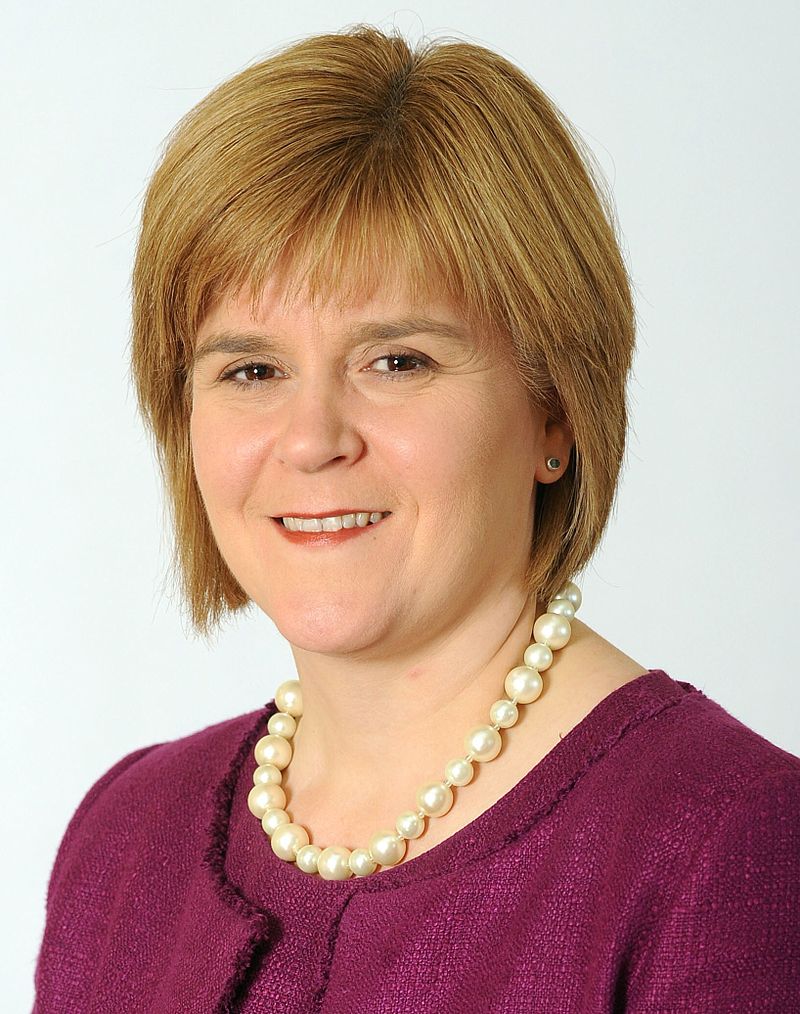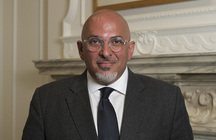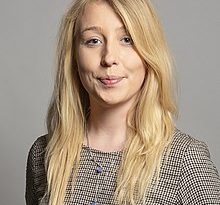Nicola Sturgeon – 2020 Statement on the Coronavirus (20/04/2020)
Below is the text of the statement made by Nicola Sturgeon, the Scottish First Minister, at St Andrew’s House in Edinburgh on 20 April 2020.
Good afternoon everybody. Thank you once again to all of you for joining us for this daily briefing.
I want to start as I always do with an update on some of the key statistics in relation to the spread of COVID-19 in Scotland.
As at 9 o’clock this morning, I can report there have been 8,450 positive cases confirmed – which is an increase of 263 since yesterday.
A total of 1,809 patients are currently in hospital with either confirmed or suspected COVID-19 – which is an increase of 12 from yesterday.
And a total of 169 people last night were in intensive care with confirmed or suspected COVID-19. That is a decrease of five on yesterday’s figures.
However, in the last 24 hours, I am afraid that 12 deaths have been registered of patients who had been confirmed through a test of having COVID-19 – and that takes the total number of deaths in Scotland, under that measurement, to 915.
Once again, I want to express some caution about that figure. Although people can now register deaths over the weekend, we would still expect that the number of registrations on Saturdays and Sundays to be relatively low. So we should take that into account when considering the figure I have just given you.
And of course, it continues to be absolutely essential that we never, ever lose sight of the human reality behind these statistics. Each death represents a loved individual whose loss is a source of grief to their family and friends. And so – yet again – I want to extend our deepest condolences to everyone who has lost a loved one.
I also want to express our thanks – as I always do – to all of our health and care workers right across the country. You are doing extraordinary work, in the most difficult of circumstances, and our gratitude continues to be with you each and every day.
I have got two issues I want to briefly update on today.
The first is the help we are making available to people who are right now struggling to access food, either because you can’t leave the house, or have no family or immediate support – or because you might be facing financial difficulties.
The main message I want to convey today is an important one but a simple one – help is available.
So please, ask for support if you need it. I’m going to in a few moments read out a national helpline number, for those of you who might need to access that.
The Scottish Government has more than doubled our investment in grants through the Scottish Welfare Fund – from £35 million to £80 million – so that councils can provide grants to people on low incomes who need immediate help. And these grants provide people with funds directly, so that they can buy food and other goods that they need.
We are also putting in place specific programmes – and I want to go through some of the different arrangements in place for different people.
If you are one of the approximately 150,000 people who are in what we call the shielded group, the most vulnerable group – who are being told to isolate completely – then our text message shielding service, or your local authority helpline, or our national helpline, can help you to order free weekly deliveries of basic food and essential supplies.
Information is also available on the NHS Inform website.
So far more than 41,000 packages of food have been delivered. And people who have signed up in the last week while they may not yet have had their first delivery, will do so shortly.
The national helpline I have just mentioned – and I’ll give this number in a couple moments – is also there for those who might not be in the shielded group but potentially at risk in some other way – for example, people over the age of 70, people with disabilities, pregnant women, people who get the annual flu jab, and people who need support from mental health services.
The helpline, when you phone it, directs you to your local authority, and therefore it’s also a good way of finding out what assistance is available in your own area, and what support might best meet your circumstances – that might be a community care grant, or it might be food being directly supplied and delivered to you.
So the number of that helpline, which I’ve given at a previous briefing but want to emphasise again today, is 0800 111 4000. That helpline is available between 9am and 5pm every weekday.
It’s a free line, and since it has been launched it has been already used by thousands of people. Now, of course, due to the volume of calls, at sometimes you might find yourself placed in a queue, but please be patient and hang on, because we will get to you.
We are also providing additional funding for local authorities to make sure free school meals remain available.
Around 140,000 children across Scotland are currently being provided with free school meals – either within council and early years premises which are still open, or through direct cash payments, supermarket vouchers, or food being supplied to them.
And finally, we are working with community and third sector organisations.
This morning, for example, we have announced £350,000 of extra funding for the Wheatley Group, to provide 8,500 food deliveries in 17 different local authority areas. Each delivery will supply food to people in need that will do them for seven days.
And a further 18 schemes will share £400,000 to provide emergency food. These schemes will work with minority ethnic households, family support groups and mental health teams.
In all of this, it’s important to say that we are working closely with key partner organisations – such as local authorities, FareShare, the Trussell Trust and the Independent Food Aid Network – to make sure that what we are offering to people in this time of need is as coordinated as possible.
Now I realise that there is a lot of detail here that I’ve given, but the key point I ask you to remember is this straightforward one.
If you can’t access food for whatever reason – that might be because you are shielding, you might be self-isolating, or you might find yourself right now unable to afford food for your family – please contact your local authority directly or phone the national helpline.
And I’ll give the number again – 0800 111 4000.
Nobody should have to worry about access to food – so if you need help, please ask for that help and we will make sure that you get it.
The second issue I want to briefly update on relates to education. Of course for most children and young people, this week, today in fact, would mark the start of the summer term.
I said before that the decision we took to close schools, to suppress the spread of this virus and to keep them closed, is one of the hardest I have ever had to take as First Minister because I know how disruptive that is to the lives and education of our young people.
And I want to again thank children and young people for putting up with this disruption so well.
And I also want to say a special thank you to parents and carers across the country. I know that many of you are juggling looking after your children with work, and other caring responsibilities, and of course with the worries and anxieties that all of us have about this pandemic.
I know how difficult that is – so thank you for doing the right thing, for keeping your children at home, and looking after them there.
The Scottish Government today has published some guidance to support continuity in learning while our schools remain closed.
This guidance builds on the work that has already been done by teachers and many others, and it focuses on three main areas.
It covers support for children and young people as they learn at home, including particular support for those who need it most – for example people with additional support needs.
It also covers support for parents and carers as you help children, and also support for teachers and school leaders.
We are very aware that this current situation is likely to have the biggest impact on the most disadvantaged children and young people in our society.
So we have already therefore provided local authorities with the flexibility they need to redirect the resources that we have given them aimed at closing the attainment gap, to help mitigate the impact of school closures on our most disadvantaged families.
And I think it’s worth stressing at this stage that nobody’s expecting children, parents and carers to recreate classrooms while schools are closed. We don’t think that’s either possible or desirable.
But we do want to protect children’s welfare, while enabling them to continue to learn. And today’s guidance sets out some further ways in which we are doing that. And if you are a parent or carer watching this I hope you will find that helpful.
Now I’m about to hand over firstly to the Chief Medical Officer and then to the Chief Nursing Officer, but before I do that, let me again say how tough I know all of this is.
But, again let me stress, that everything we are doing right now, everything I’m asking you to do and everything you are doing is essential.
Towards the end of this week, I will set out some of the factors that will guide our thinking for the future.
I want to be clear however, that the initial version of this work will not set out what measures will be lifted and when.
We’re simply not yet in a position to take those decisions in a properly informed way – and I will not rush to do anything that could risk a resurgence of this virus because to do that would risk overwhelming the National Health Service and it would put many more lives at risk.
But what we will start to do is set out, firstly, our objective – which is continuing to suppress the virus while considering how we can even gradually restore a semblance of normality to everyday life.
We will set out the factors that we need to consider as we do that and the framework in which we will seek to take these decisions.
But it will also be clear the work we set out later in the week, that living with this virus – as we will need to learn to do – is likely to mean some restrictions on everyday life in the form of social distancing for a while to come.
But as we consider the best way forward – and the very difficult decisions that that will entail – we will be as open as we can be about the balance we are seeking to strike and how we can best do that. This is something that effects all of us, so it is important that all of us are included in and are aware of that decision-making process.
But for now, let me once again end by emphasising the key public health rules that are in place now.
Please stay at home, unless you are going out for essential purposes – such as exercising once a day, or buying food or medicines.
If you do go out, do not meet up with people from other households, and stay two metres apart from other people. And wash your hands thoroughly and regulalry.
These restrictions, as I’ve said, remain really tough, and they get tougher as the days and the weeks go by. But they are essential, and most importantly of all they are making a difference. By doing the right thing, and by staying at home, all of us are helping to make that difference – we are doing our bit to slow the spread of the virus, to protect the NHS, and to save lives. So thank you, once again, to everyone for doing that.


